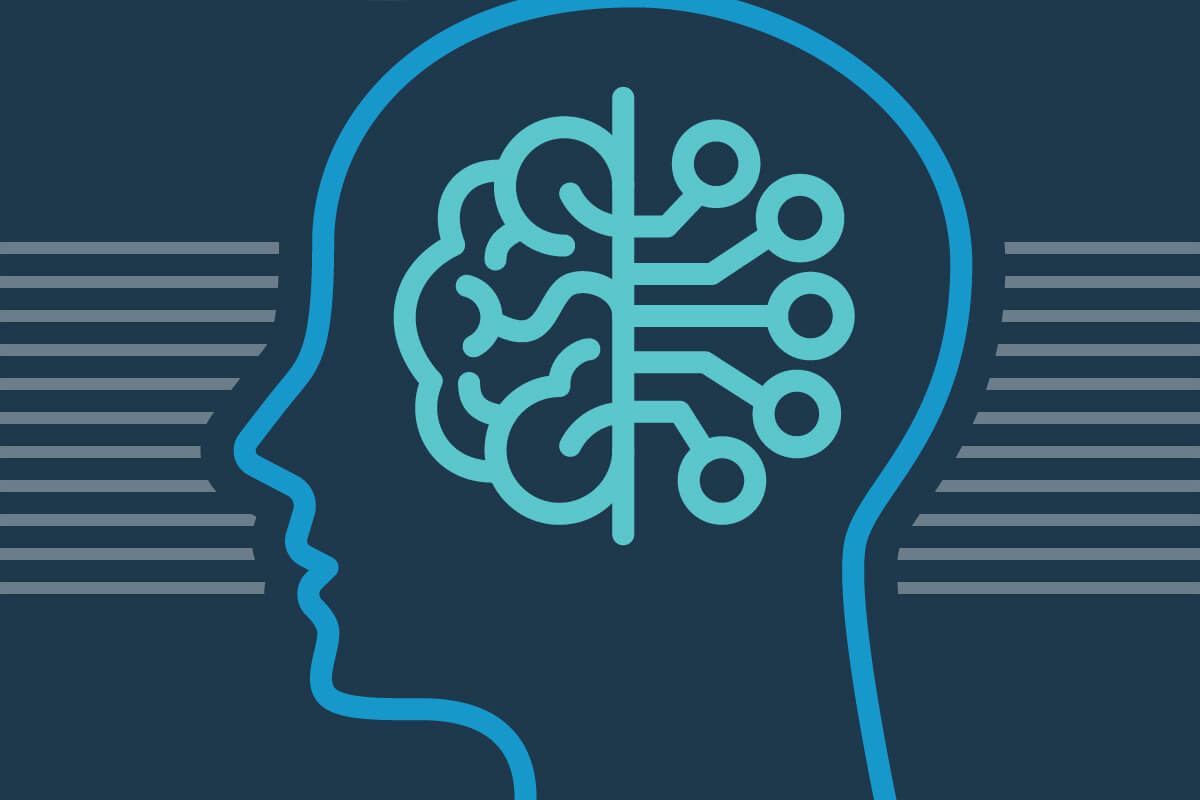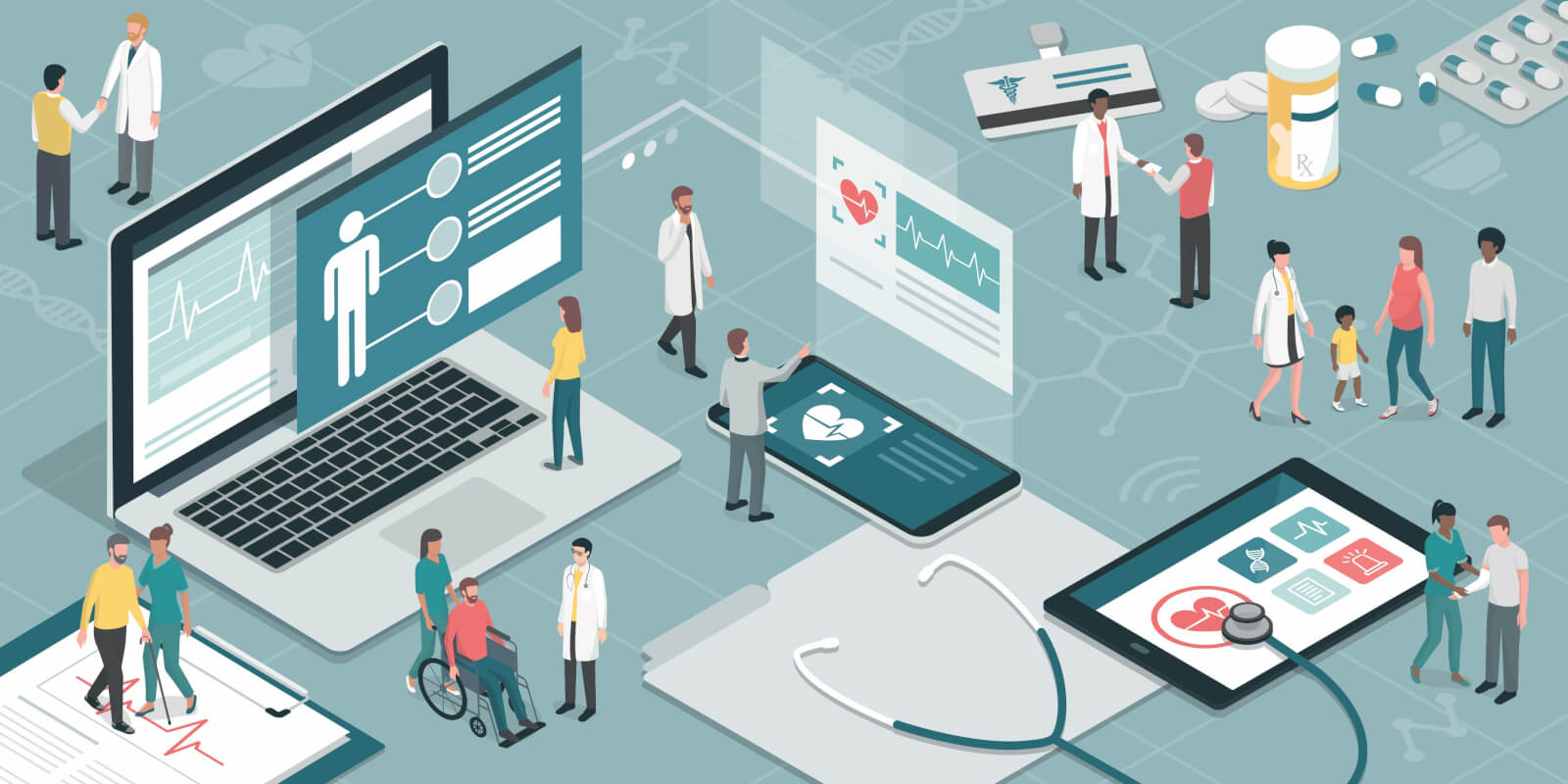Famous futurist Roy Amara once said, “We tend to overestimate the effect of a technology in the short run and underestimate the effect in the long run.” From all of the hype and headlines surrounding the development of artificial intelligence (AI), it’d be safe to assume that the technology has fallen victim to this principle now known as Amara’s Law.
But in some industries, the opposite is actually happening to AI. Take healthcare, for instance. It is struggling to understand the immediate value that AI can provide to solve some substantial problems. Yes, the medical industry has mountains of data to leverage (a key ingredient to AI success). But there’s still some work to be done before this data can become a truly valuable asset for the field.
Why Is It so Hard for Healthcare to Embrace AI?
There’s no doubt that AI has already had an immense impact on numerous industries. Yet, medical ecosystems and facilities across the world fail to take advantage of the technology. Why is this? Well, unlike other sectors, healthcare suffers from troublesome data siloes. Connecting the dots between the data is a necessity for leveraging AI’s abilities, but this can’t be done if the information is trapped in isolated sites.
Besides this, many medical institutions are prioritizing other endeavors ahead of AI since they think the technology won’t be viable until the distant future. At the 2019 World Medical Innovation Forum, MedTech developers, researchers, and clinicians from Harvard Medical School and Partners HealthCare urged attendees to change this perspective.
According to these speakers, the medical industry is not doing enough to look past the AI hype and adequately equip itself for the fundamental changes the technology will usher in over the next few decades. Big data could play a vital role in cutting costs and improving patient outcomes.
But for this to happen, medical stakeholders will need to reframe the way they think about data. Factors like what types of data are relevant, how it’s shared, and how human bias can be avoided will all play a huge role in tapping into AI’s true potential.
Regulators won’t be exempt from this change in perspective, either. They must keep pace with the rapid-fire rate of change by monitoring the efficacy of algorithms, paying closer attention to empirical evidence, and adjusting both privacy and security frameworks accordingly.
CMS Administrator Seema Verma believes we’re at a crucial pivoting point in how we can utilize data to improve healthcare holistically. But the onus to make this transition a success falls on each stakeholder: “Artificial intelligence is maturing. Data interoperability is starting to improve. The drivers of consumer-focused healthcare are getting stronger. We need to start having these conversations, and we will need to keep having them for some time.”
Implementing these transformative changes in an industry that is fond of holding on to pre-established conventions will be difficult. But if we don’t do so, the consequences will cost all stakeholders. Of course, first things first — to change the results of our healthcare systems, we must change our perspectives on the matter of integrating AI into them.
Reframing the Role of Data In Healthcare
Implementing AI in healthcare requires innovators and stakeholders to approach the topic with fresh eyes. They must realize that data could improve both treatment and prevention of ailments if examined and used in the right way. Noubar Afeyan, the founder and CEO of Boston-based venture capital company Flagship Pioneering, believes that data could especially make a big difference in the case of prevention.
“I would like to see a complete reframing of the healthcare challenge, especially in terms of rewarding early detection and prevention,” he says. “We should be thinking about healthcare the same way we think about national security. We don’t have a Department of Restoring Peace in this country – we have a Department of Defense, because the goal is to keep the enemy away from our shores, not deal with them once they have invaded.”
AI could play an integral role in neutralizing health threats before they become bigger problems via unparalleled proactive monitoring. But to do so, healthcare systems will need to change how they absorb information — as well as the type of information they absorb.
Calum MacRae, MD, PhD, chief of cardiovascular medicine at Brigham & Women’s Hospital (BWH) believes many potential solutions lie in the examination of individuals, their lifestyles, and their environments. Unfortunately, healthcare isn’t doing enough to pay close attention to all of those areas.
“In medicine, we tend to put a lot of faith in the types of information we have always put our faith in,” says MacRae. “But we know that clinical data only represents a fraction of the information that really predicts outcomes.”
On this note, the industry isn’t exactly starting from scratch. It has already embraced the concept that possibly 80 percent of outcomes are dependent on a host of non-clinical factors like economic status, education, exercise, and other social determinants. But tracking and addressing these factors remains an elusive challenge for healthcare providers.
MacRae cautions, “We need to start to use the data that we generate in our daily lives: GPS data from our phones; accelerometry data from our watches; our television viewing habits; our credit card receipts. We need to start thinking about how, in a secure and controlled way, we can use that information to inform our behaviors years before we ever need to see a healthcare provider.”
While developing the technology and paradigms necessary to take this data into account is undoubtedly an obstacle, deploying them successfully will largely depend on the underlying attitudes of stakeholders. To improve our chances of success, MacRae believes retraining will be required. Many of these data points already exist and are apparent. But we can’t leverage their value unless we open our eyes to see them.
Ready for Part 2?
We hope you’ve enjoyed the first part of this series on why looking at data differently is the key to unlocking healthcare AI’s value!
Stay tuned for part 2, where we’ll take a deep dive into how organizations can avoid bias while building out AI-driven care and how they can access the data they need to succeed in their AI endeavors.










